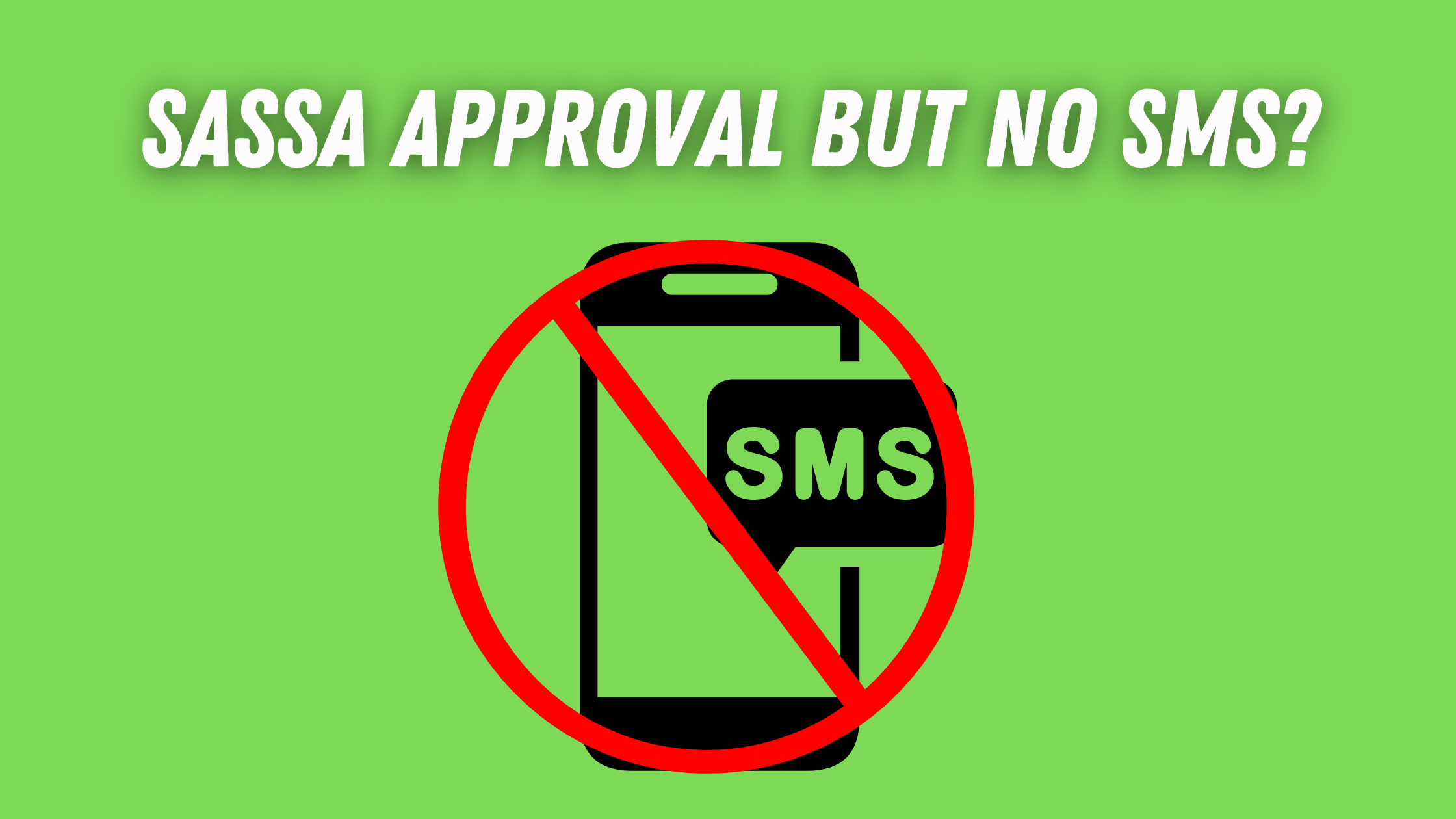SASSA’s role is to manage and administer the provision of social grants to vulnerable segments of the population, a task which encompasses a multitude of different grants and approval procedures. However, a frequent point of confusion arises when an applicant’s grant is approved, yet no confirmation through SMS is received.
If your SASSA application was approved but no SMS was received, there could be a typo in your application, an issue with your SIM card, or a delay in SASSA’s notification system.
Who Is SASSA?
SASSA, South African Social Security Agency, is a national agency established to administer the distribution of social grants in South Africa to segments of the populace that have the highest risk of poverty. It was created as a part of the country’s approach to social development, with the aim of reducing inequality and ensuring that as many people as possible have the means to meet basic living needs.
SASSA offers a plethora of grants, each designed to cater to different segments of the population. For example, there’s the Child Support grant for taking care of minors who come from underprivileged backgrounds, and the Older Person’s Grant designed to provide emotional and financial sustenance to citizens who are above the age of 60.
Understanding SASSA’s Role
The South African Social Security Agency (SASSA) serves as a governmental instrument aimed at tackling poverty and vulnerability in society. Its main function lies in its provision of grants, acting as a safety net to ensure a more equitable distribution of wealth for those most at risk.
However, there are instances when beneficiaries’ grant applications are approved, but they do not receive a text message (SMS) to confirm the approval, resulting in confusion around the status of their applications. This situation is referred to as “SASSA approved but no SMS”.
The lack of communication may be due to system delays or other administrative factors. Beneficiaries who find themselves in this predicament are encouraged to patiently await the SMS, or alternatively contact their local SASSA office for further assistance.
The SASSA Approval Process
The process with SASSA kicks off with the submission of an application, inclusive of necessary documents which aid in determining the applicant’s eligibility. These typically comprise proof of identity, income documentation, supporting documents based on the type of grant applied for, like disability certification.
Upon receipt of the application, SASSA officials embark on a comprehensive verification process. Using the provided details, they verify the applicant’s eligibility in line with the stipulated prerequisites for each grant category. The ultimate aim of this process is to ensure that those in genuine need receive the intended grant support in accordance with the established guidelines.
Navigating the SASSA Approval and Notification Process
After you lodge your application with the South African Social Security Agency (SASSA), it could take anywhere from a few weeks to several months for it to be processed. The timeframe is dependent on various elements including the number of applications SASSA is handling and the intricacy of each individual case.
Once your application undergoes a review and gets approved, you are typically informed through an SMS. However, there may be instances when this SMS notification is not sent despite the approval of your application. Possible reasons for this could be technical hitches or issues with the communication system.
In case you find yourself in this predicament, it’s recommended that you verify the status of your application through SASSA’s online platform or reach out to them directly to get a definite answer.
Why Don’t you Receive SASSA SMS After Approval?
The South African Social Security Agency (SASSA) undertakes the responsibility of informing grant recipients, including those of the COVID-19 social relief distress grant, via an SMS. However, in some cases, beneficiaries whose applications have been approved might not receive this communication, resulting in confusion regarding their grant status.
Multiple reasons might lead to such a glitch. The most common include network challenges like poor signal in certain regions or a malfunctioning SIM card. Alternatively, the applicant may have shared incorrect contact details while applying or an error could have occurred while SASSA was feeding the recipient’s data into their system.
Dealing with No SASSA Confirmation SMS
When an individual is sure that their SASSA grant application was approved, but they have not received an SMS confirmation, there are a few steps that can help resolve the situation. The first, and most important, is to verify the contact information that was supplied during the application process.
Errors in communication, whether due to mistyping or other issues, can result in delays or failure to receive crucial information. Assuming the contact details were correctly provided, the next approach is to check if the current settings on the mobile phone are limiting the reception of SMS messages.
Should these steps not fix the issue, reaching out to SASSA directly via their hotline or email is recommended. When doing this, the applicant should be ready to provide their ID number and confirm their correct contact details.
Taking this action will allow them to affirm their approval status, express the challenge of not receiving an SMS notification, and offer an additional contact number if one is available. The SASSA helpline is a helpful tool for addressing such concerns, providing assistance and clarification for approved beneficiaries who are having difficulties with the grant-confirmation process.
SASSA’s Communication Channels Outside of SMS
The South African Social Security Agency (SASSA) makes use of varied communication channels to reach its applicants. One of the most common ways the agency disseminates information is through SMS notifications.
These notifications inform beneficiaries about the status of their application, including whether the application has been approved or not. Nonetheless, if you have been approved yet have not received an SMS notice, there is no cause for alarm.
Occasionally, SASSA experiences delays with their automatic update system, so receipt of confirmation messages might be delayed.
How to stay updated
In such cases, applicants can use alternative means to stay informed. SASSA encourages individuals to make use of their online portal, or get in touch with their call center agents. The online platform allows you to check your grant status, application process, and other relevant details whenever you need.
Should you not have the facility to go online, SASSA runs a toll-free call center that operates on weekdays within office hours where you can query the status of your application and get assistance.
It is also possible to visit the nearest SASSA office for face-to-face help if needed. SASSA takes it upon themselves to keep the public informed about the latest changes, updates, or information about their services through public service announcements on TV, radio, newspapers, and on their official social media platforms.
Patience is Key
All these alternatives work in tandem with the SMS updates. Therefore, if you’re an applicant who has been approved but hasn’t received an SMS yet, know that you are not in the dark.
You can always get in touch with SASSA through these platforms to get updates and confirmation. It’s also important to remember that sometimes system and administrative delays are experienced, during those times patience and keeping an open line of communication with SASSA is key.
Conclusion
Armed with an understanding of SASSA’s role, the grant approval process, potential communication issues, and how to effectively interact with SASSA, citizens are better positioned to navigate this key component of South Africa’s social support system.
Ensuring smooth and effective communication is an ongoing process that requires both active participation from the applicant and constant improvement from the agency. The knowledge herein provides a crucial foundation for both parties to interact more effectively, thereby facilitating a smoother, more efficient allocation of resources to those who need them most.


